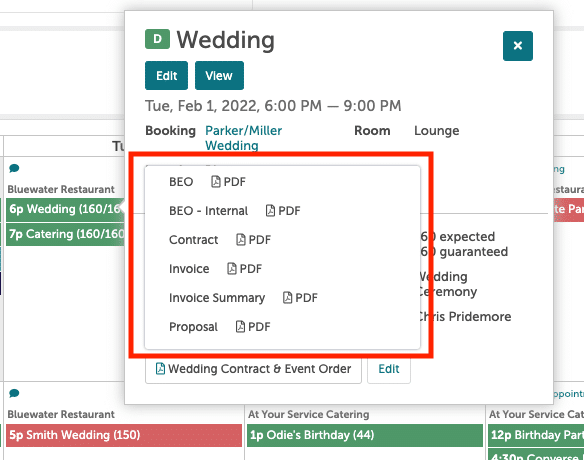Event Venue Profitability: A New Owner’s Guide on Ways to Make Your Venue a Powerhouse

Opening a new event venue is an exciting venture, but the big question is always: can it be profitable? The answer is a resounding yes. With profit margins ranging from 10% to as high as 60% for high-demand spaces, a well-run venue can be incredibly lucrative.
Consider this: in 2023, the average wedding cost over $29,000, with a significant portion going to the venue. If your venue hosts 50 weddings a year with just a 20% profit margin, you could see substantial returns. However, success doesn’t happen by accident. It requires careful planning, a firm grasp of your costs, and a clear strategy for maximizing revenue. This guide will walk you through the actionable steps to turn your new venue into a profitable powerhouse.
Key Takeaways
- Profitability is Realistic: Event venues can achieve profit margins between 10-60%, but success hinges on strategic planning and management.
- Know Your Numbers: A deep understanding of startup and operational costs is the foundation of a profitable business.
- Diversify Revenue: Don’t rely on bookings alone. Implement tiered packages, upsells, and dynamic pricing to maximize earnings per event.
- Marketing is Non-Negotiable: A robust digital marketing strategy, including local SEO, social media, and targeted ads, is essential for attracting clients.
- The Guest Experience is Everything: A seamless and memorable experience leads to positive reviews, repeat business, and word-of-mouth referrals.
- Avoid Common Mistakes: New owners often underestimate costs, neglect marketing, and fail to build strong vendor relationships. Proactive planning can prevent these errors.
How Profitable Are Event Sales?
Event venues can be highly lucrative, but their earnings vary based on factors like location, clientele, and event types. Research shows that on average, venue owners see profit margins ranging from 10% to 20% of revenue, with high-demand spaces achieving margins as high as 60%.
Take wedding venues, for example. In 2023, the average cost for a wedding venue in the U.S. was around $7000, with total wedding budgets averaging $29,000. If a venue hosts 50 weddings annually with a 20% profit margin, the owner could see profits of $70,000 per year.
With the right approach, there’s no ceiling to your earning potential.
Common Types of Event Venues
Your venue type will depend on your local market and audience. Here are the most common options:
Wedding Venues
- Why they work: Weddings are high-budget affairs, and couples are willing to pay top dollar for their dream day.
- Average Costs: Couples spend over half their wedding budget on the venue, with scenic or unique spaces commanding premium prices.
- Challenges: High initial investment for décor, landscaping, and amenities. However, the profitability often justifies the upfront costs.
Corporate Venues
- Why they work: Corporate events like conferences, networking sessions, and product launches are versatile and require less customization.
- Cost-to-setup: Minimal—chairs, tables, AV equipment, and optional catering staff are often sufficient.
- Revenue Streams: You can maximize profitability by hosting multiple events during the week.
Entertainment Venues
- Why they work: Entertainment venues thrive on secondary sales like food, drinks, and merchandise.
- Considerations: Startup costs for lighting, sound systems, and infrastructure can be high. Booking talent is another key expense.
- Profit Potential: Large festivals or recurring events can generate significant ROI, especially in outdoor or multi-functional spaces.
Getting Started as a New Venue Owner
Step 1: Understand and Manage Your Costs
Before you can maximize profit, you must master your expenses. Profitability begins with a detailed understanding of both your initial and ongoing costs.
Startup Costs:
Venue Acquisition: Whether you’re buying or leasing, this will be your largest initial expense.
Renovations & Decor: Creating an appealing atmosphere is key to attracting clients.
Equipment: This includes everything from kitchen appliances and AV equipment to tables and chairs.
Licensing and Permits: Ensure you are fully compliant with local regulations.
Ongoing Operational Costs:
Staffing: A well-trained team is your greatest asset. Hiring event professionals who provide exceptional service will enhance your reputation.
Utilities and Maintenance: Keep the lights on and the venue in pristine condition.
Marketing & Advertising: A necessary investment to keep your pipeline full.
Insurance: Protect your business from unforeseen circumstances.
Step 2: Strategies to Maximize Event Venue Profitability
Once you have a handle on your costs, it’s time to focus on revenue. Here are proven strategies to boost your bottom line.
Optimize Your Pricing Strategy:
Don’t just pick a number. A sophisticated pricing strategy can dramatically increase your revenue.
Tiered Packages: Create “Bronze,” “Silver,” and “Gold” packages. This caters to different budgets and creates clear upsell opportunities.
Dynamic Pricing: Charge more for peak days (like Saturdays in June) and less for off-peak times to encourage bookings throughout the year.
Expanded: Value-Based Pricing: Instead of just covering your costs, price based on the value you provide. What makes your venue unique? Is it the stunning view, the state-of-the-art sound system, or your exceptional service? Quantify this value and build it into your pricing. For example, a venue with an exclusive waterfront view can command a premium because that feature provides immense value to a wedding client. Clearly articulate this unique value proposition in your marketing materials to justify higher price points.
Upsells/Add-ons:
- In-house: Catering, bar services (open bar packages, signature cocktails), AV equipment rental, specialty lighting, decor packages, floral services, event coordination/planning.
- Partnerships: Preferred vendor lists (with potential referral fees), exclusive discounts with local hotels for guest blocks.
- Unique Experiences: Team-building activities, themed decor, custom branding options.

Strategies to Maximize Event Venue Profitability
1. Develop a Rock-Solid Business Plan
Start with a detailed business plan that accounts for all startup and operational costs, including a buffer for surprises. Set clear, realistic financial goals to guide your growth and keep you focused.
2. Align with Market Demands
Analyze local market trends to identify opportunities. For instance, if the area is saturated with wedding venues but corporate event spaces are limited, position your venue to cater to underrepresented segments.
3. Elevate Your Operations
Staffing Optimization
Building a responsive, well-trained team lets you flex up or down with demand while maintaining high service standards:
- Flexible Staffing Models:
- Maintain a core team of full-time coordinators and on-call part-time staff for peak days or seasonal surges.
- Use scheduling software to forecast labor needs based on historical booking patterns and upcoming calendar density.
- Cross-Training:
- Train staff across multiple roles—hosting, setup/breakdown, AV support—so you can reassign resources instantly when last-minute changes occur.
- Rotate junior staff through “shadow” shifts with senior coordinators to build skills without sacrificing service quality.
- Customer-Focused Culture:
- Host quarterly workshops on hospitality best practices (e.g., problem-solving on the fly, personalized guest interactions).
- Gather quick “flash feedback” after each event to recognize top performers and identify coaching opportunities.
Vendor Management
Strong vendor partnerships guarantee quality, reduce costs, and free you to focus on core operations:
- Negotiating Favorable Terms:
- Bundle multiple event dates or commit to a minimum annual spend to leverage volume discounts with caterers, AV providers, and rental houses.
- Include performance clauses—e.g., on-time delivery guarantees or equipment uptime minimums—to protect your reputation.
- Quality Control:
- Develop a simple scorecard (timeliness, condition, responsiveness) after each event; share results with vendors in regular review meetings.
- Maintain a “preferred vendor” list of top performers, and limit one-off arrangements to keep standards high.
- Relationship Building:
- Host an annual “Vendor Appreciation” breakfast at your venue—networking strengthens loyalty and often unlocks better pricing or service.
- Invite key partners to walk the space so they understand your unique needs (e.g., power access points, load-in logistics), reducing surprises on event days.
Smart Technology
A holistic tech stack can optimize every facet of your operation:
- Advanced POS (Point of Sale) Systems
- Event Management & Automation Software
- Staff Management Software
By fine-tuning your staffing, deepening vendor partnerships, and embracing a diverse tech toolkit, you’ll reduce overhead, elevate service consistency, and empower your team to deliver memorable events each and every time.

4. Optimize Your Pricing Strategy
Effective pricing strategies can transform your venue from a commodity into a coveted destination, boosting revenue, improving utilization, and sharpening your competitive edge. By tailoring your rates to market dynamics, emphasizing the unique experience you offer, and understanding your peers, you’ll position your space for maximum profitability and appeal.
Dynamic Pricing
Adjust your rates in real time to capture the true value of your venue as demand shifts:
- Demand-Based Fluctuations: Raise prices for peak dates (e.g., Saturday evenings, prime wedding season in June–September) and offer lower rates on quieter weekdays or off-season months.
- Seasonality Adjustments: Introduce winter or mid-summer specials to fill slow periods—e.g., 20% off January–February bookings, or “early-bird” spring event discounts if booked six months in advance.
- Event-Type Tiers: Charge a premium for high-profile events (galas, fundraisers) versus smaller gatherings (birthday parties, meet-and-greets), reflecting the extra staff, décor, or coordination required.
- Last-Minute Deals & Minimums: To protect your margins, offer flash discounts for reservations made within two weeks or enforce minimum spend requirements on busy nights.
Value-Based Pricing
Shift the conversation from square footage to unforgettable moments—price on the benefits you deliver:
- Experience Over Essentials: Promote lighting design, sound production, on-site coordination, and curated décor as part of your core offering—build packages around these “extras” rather than just room rental fees.
- Emotional ROI: Highlight testimonials where clients raved about stress-free planning or rave-worthy photo ops; justify premium rates by underlining how your venue made their vision seamless.
- Tiered Packages: Bundle in catering partnerships, AV packages, or after-hours access at higher price points—each tier communicates a clear set of elevated benefits.
- Storytelling Assets: Use case studies and day-in-the-life narratives to illustrate what attendees remember most—then translate those anecdotes into a value justification for your rates.
Competitive Analysis
Know your market so you can position yourself as the obvious choice:
- Benchmarking Research: Survey three to five local venues for comparable capacities and features; note their base rates, add-ons, and seasonal promos.
- Niche Positioning: Decide if you’ll compete on luxury (white-glove service, custom décor), budget-friendliness (accessible rate tiers, flexible minimums), or uniqueness (rooftop views, historic architecture).
- Gap Identification: Spot underserved segments—perhaps there’s no mid-range conference space in your neighborhood or a boutique wedding venue with urban-farm charm—and tailor your pricing to fill that void.
- Ongoing Monitoring: Set quarterly “mystery shop” checks on competitor websites or sign up for their newsletters to stay abreast of new packages, discounts, and rate changes, and adjust your own offerings accordingly.

5. Master the Art of Digital Marketing
Elevate your venue’s online presence and turn browsers into bookings with a strategic mix of organic, social, and paid tactics.
Showcase Your Space Visually
- High-Impact Imagery: Invest in professional photos and 3D video walkthroughs. Post them across Instagram, Pinterest, and your website’s homepage to capture attention immediately.
- Virtual Tours: Embed short, immersive videos (30–60 seconds) in your site and social stories to let prospects “step inside” before they visit.
Actionable SEO Tips
- Targeted Keywords
- Primary: “Wedding venue [Your City]”, “Corporate event space near me”
- Long-tail: “Intimate garden wedding venue [Neighborhood]” or “Budget-friendly conference room [City]”
- Local SEO Essentials
- Claim and optimize your Google My Business listing: add up-to-date photos, accurate hours, and a short, keyword-rich description.
- Encourage past clients to leave reviews—each rating boosts credibility and ranking.
- Location-Specific Content
- Create neighborhood guides (“Top 5 Bridal Salons Near [Your Venue]”) or seasonal event round-ups (“Fall Wedding Trends in [City]”) to capture local search traffic.
Social Media Strategy
- Instagram & Pinterest
- Post carousel galleries of real events, mood boards, “before & after” setups, and client testimonials.
- Use Stories/Reels to share behind-the-scenes prep, live event highlights, and venue staff spotlights.
- Facebook
- Build a community with polls (“Which centerpiece do you prefer?”), Q&A livestreams, and event announcements.
- Pin glowing testimonials to the top of your page.
- LinkedIn & TikTok
- LinkedIn: Publish case studies of high-profile corporate gatherings.
- TikTok: Share quick tours set to trending music and time-lapse event builds.
Content Marketing Ideas
- Blog Posts & Guides
- “Top Wedding Trends for 2025”
- “How to Plan a Seamless Corporate Retreat”
- “Checklist: Choosing the Perfect Birthday Venue”
- Case Studies & Spotlights
- Deep-dive interviews with past clients: what challenges you solved, creative details, and ROI for corporate events.
- Vendor partner spotlights (caterers, florists), linking back to your venue for cross-promotion.
Paid Advertising Fundamentals
- Social Ads
- Facebook & Instagram: Use geo-targeted campaigns promoting seasonal specials (e.g., “Book your summer wedding—10% off through July!”).
- Retargeting: Serve dynamic ads to website visitors who viewed your gallery but didn’t inquire.
- Search Ads
- Google Ads: Bid on high-intent keywords (“book banquet hall [City]”) and leverage ad extensions to highlight testimonials, special offers, and location.
- Monitor cost-per-lead and adjust daily budgets to maximize ROI.
Email Promotions & Nurturing
- Newsletter Campaigns
- Send a bi-weekly digest featuring upcoming open houses, past event highlights, and exclusive package deals.
- Automated Drip Sequences
- After a site visit or brochure download, trigger a series of 3–5 emails that showcase real weddings, offer limited-time discounts, and prompt scheduling a tour.
By weaving together optimized search tactics, compelling visuals, targeted social engagement, and strategic advertising, you’ll position your venue at the top of every prospective client’s list.
Ready to streamline your booking and marketing process? Learn how Tripleseat’s event management software can help you capture and convert more leads.
6. Create an Unforgettable Customer Experience
Delivering exceptional service not only delights your clients, but it also becomes your most powerful marketing asset. By consistently going the extra mile, you foster rave reviews, drive referrals, and secure repeat bookings. Embedding personalization, crystal-clear communication, and thoughtful follow-up into your workflow cements your reputation and builds lasting partnerships.
Personalization: Tailor Every Detail
- Client Profiles: Capture preferences (favorite layouts, dietary restrictions, décor styles) in your CRM tech to surprise them with bespoke touches.
- Custom Experiences: Offer upsells that resonate—champagne toasts for weddings, branded swag for corporate retreats, or a photo booth with personalized backdrops.
- On-Site Personal Touches: Greet VIPs by name, display custom signage, or curate a signature cocktail that reflects the event theme.
Communication: Keep Everyone Aligned
- Booking Confirmation & Reminders: Send automated, branded emails or texts with critical details (timing, parking, dress code) at key milestones: upon booking, two weeks out, and 48 hours before the event.
- Dedicated Point of Contact: Assign a single coordinator to handle all questions—centralizing conversations and preventing mixed messages.
- Real-Time Updates: Use group chats or event-specific portals (Slack channels, WhatsApp groups) to share floorplans, setup photos, and last-minute changes with clients and internal teams.
Post-Event Follow-Up: Turn Feedback into Growth
- Thank-You & Survey: Within 24–48 hours, send a personalized note along with a brief feedback form—aim for three targeted questions on experience, staff service, and areas to improve. Event survey technology can really help make this easy.
- Review Solicitation: Make it easy: include one-click links to Google, Facebook, or The Knot, and consider a small incentive (e.g., a discount on their next booking) for posting a review.
- Referral Requests: Ask satisfied clients to introduce you to planners or colleagues—offer a referral bonus or credit toward future events.
Building Long-Term Relationships: Your Path to Sustained Success
- Regular Check-Ins: Add key clients and planners to a quarterly outreach list—share venue updates, seasonal specials, or invite them to VIP site tours.
- Partnership Collaborations: Host co-branded open houses, networking mixers, or vendor showcases to deepen ties with caterers, florists, and event designers—and tap into each other’s networks.
- Loyalty Programs: Create a tiered rewards system (e.g., free add-on after five events, priority booking windows) to recognize repeat customers and keep your venue top-of-mind.
By weaving these strategies into your standard operating procedures, every interaction becomes an opportunity to reinforce your value proposition, grow your network, and convert satisfied clients into enthusiastic ambassadors.
7. Utilize Event Management Technology

Streamline operations with tools that simplify bookings, payments, and event coordination. Platforms like Tripleseat are a game-changer for new venues looking to boost profitability by streamlining their event operations. Designed specifically for venues, Tripleseat simplifies the process of managing private events, helping venues increase bookings, save time, and enhance client satisfaction. Automating tasks and centralizing communication allows venues to focus on delivering exceptional experiences while keeping costs in check. Here are some of the key features that drive profitability:
- Lead Management: Capture and organize leads efficiently to maximize your booking potential.
- Centralized Event Management: Track all event details, communications, and tasks in one platform.
- Dynamic Proposal & Contract Tools: Quickly generate professional proposals and contracts, reducing turnaround time and securing bookings faster.
- Payment Collection: Simplify deposits and final payments with integrated payment processing.
- Reporting & Analytics: Gain insights into revenue trends, booking performance, and client preferences to make data-driven decisions.
- Customer Relationship Management (CRM): Build stronger client relationships to encourage repeat business and referrals.
Avoid These Common Pitfalls
Many new venues stumble on their path to profitability. Be aware of these common mistakes:
- Underestimating Total Costs: Hidden expenses can quickly eat into your profits. Always have a contingency fund of at least 15-20%.
- Neglecting a Marketing Budget: Many owners think a great venue will sell itself. In a competitive market, you must invest in marketing to stand out.
- Poor Staff Training: Your staff is the face of your venue. Inadequate training leads to a poor customer experience and negative reviews.
- Failing to Build a Niche: Trying to be everything to everyone can make you the choice for no one. Decide if you want to be the go-to for luxury weddings, corporate events, or intimate gatherings, and tailor your offerings accordingly.
Case Study: How Elusa Winery Quadrupled Its Event Volume
Elusa Winery, a luxury destination in Napa Valley, was bogged down by manual, time-consuming processes for managing their private events. With information scattered across spreadsheets and documents, their team lacked a clear view of their event pipeline, making it difficult to track leads and financials efficiently. By adopting Tripleseat, they centralized their entire event management process. This shift allowed them to seamlessly create Banquet Event Orders (BEOs), contracts, and documents, ultimately saving the team administrative work each week and providing real-time visibility into their sales performance.
Ready to Turn Your Venue into a Revenue-Generating Machine?
The event venue industry is brimming with opportunities, but success requires a mix of careful planning, market research, and strategic investment. With profit margins ranging from 10% to 60%, the potential rewards are immense for those who are well-prepared.
Embrace the challenge, and your venue could become the go-to destination for unforgettable events. Start by streamlining your operations with event management software like Tripleseat to increase sales and optimize your time. Are you ready to grow your event business? Schedule a Tripleseat demo to take a closer look at our event management features.

